Air forces from the United States, United Kingdom, France and Finland have concluded Atlantic Trident 25, a two-week multinational exercise focused on high-end air combat training, interoperability, and rapid deployment in contested environments.
Held in Finland for the first time, the exercise ran from 16 to 27 June across several locations including Pirkkala, Rovaniemi, Halli, Kuopio, and Jyväskylä air bases.
Originally a trilateral effort involving the US, UK and France, Atlantic Trident this year expanded to include Finland, marking its growing integration into Allied air operations following its accession to NATO in 2023. Finnish forces played a central role in planning and hosting the exercise, which brought together fourth- and fifth-generation fighter aircraft and support personnel from across the participating nations.
U.S. Air Force Lieutenant General Jason Hinds, Deputy Commander of U.S. Air Forces in Europe–Air Forces Africa, said the exercise demonstrated credible deterrence and combat readiness: “Atlantic Trident 25 demonstrated and advanced our deterrence, and it demonstrated that if deterrence fails, the four nations represented here today are ready to win decisively.”
Training focused on both air combat operations and the logistical and ground support functions needed to sustain them. Allied personnel conducted rapid airfield repair drills, practiced hot-pit refuelling and cross-servicing of aircraft, and exercised combined logistics, command, and control processes.
“Airmen from our four nations were training together and learning together all in peacetime,” Hinds said. “Now they’re developing trust across the Alliance at the unit level, down to the individual.”
Each country deployed combat and support aircraft to the exercise. The U.S. contribution included F-35A Lightning II, F-15E Strike Eagle, and KC-135 Stratotanker aircraft. Finland deployed F/A-18 Hornets, while the UK sent Eurofighter Typhoons. The French Air and Space Force contributed Rafale fighters, E-3F Sentry airborne early warning aircraft, A330 MRTT tankers, and A400M Atlas transport aircraft.
French Air and Space Force Colonel Vincent, a Rafale pilot, said the exercise was key to building integrated air power: “This type of exercise, for us, means to train together. We know we can fight together, and we know we can exchange and distribute our capabilities.”
Michael Goodwin, the U.S. lead planner for Atlantic Trident 25, praised Finland’s role in hosting the exercise. “Everything we’ve asked of the Finnish in planning this past year, they have responded with ‘that will not be a problem.’”
The exercise also supported the Agile Combat Employment (ACE) concept, which prioritises flexible, dispersed operations in contested environments. It tested the participating nations’ ability to generate and sustain combat power under realistic conditions, emphasising shared procedures and rapid response.
“This exercise was solely focused on readiness, and that’s readiness to win the high-end fight,” said Hinds. “This year, Finland provided us with the opportunity to train and respond in a realistic scenario in defense in the High North, so together, we advanced our air forces’ ability to integrate across the countries – all four of them.”



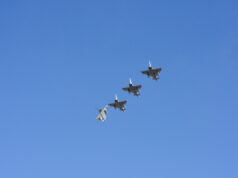
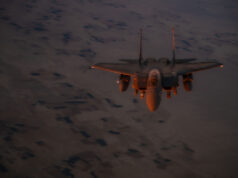
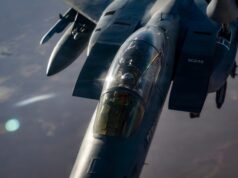
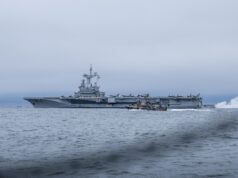
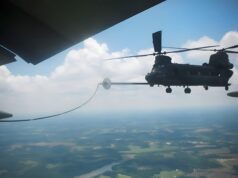
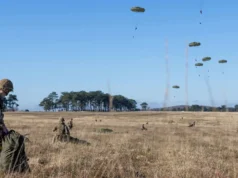
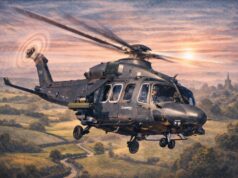

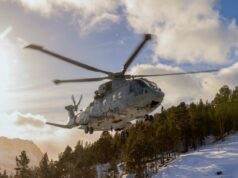
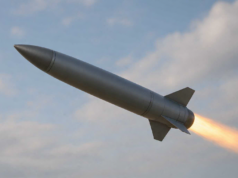

The UK needs to knuckle down and sign some contracts. More typhoon and/ or F35s are going to be needed to bridge the gap until Tempest comes along.
Our combat air power is excessively small. 4 other European NATO nations get much more bang for their bucks and have larger fast jet fleets than the RAF.
Absolutely.
More jets = more air defense + striker power + force projection.
Increasing the size of the Navy would be great aswell considering we’re an island nation and something like 95% of our trade is at sea.
All of which means lots of extra money. Sadly, not going happen.
My outside bet – Tempest will be scrapped.
And yet we take part in more exercises, more global deployments, and more live operations. Its not just about numbers. But capability. And the ability to support them far from home.
I agree on the fact that it’s not the bigger the better but it would be nice to have more of everything .I like the idea of AA defences myself.
Counter point to that is more strain and fatigue on fewer airframes, if Tempest slips that could be a major headache.
What happened to the Peace-enforcement/peacekeeping force for Ukraine!